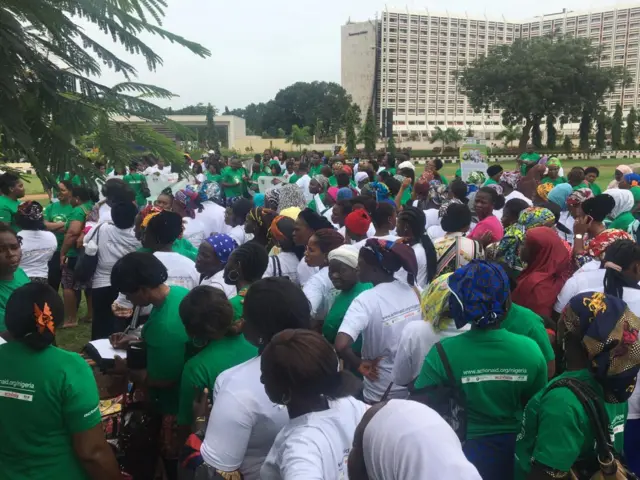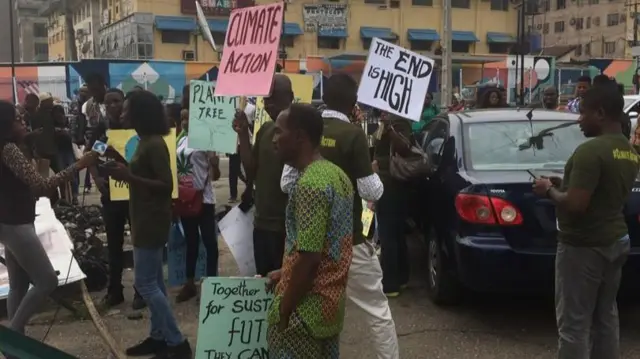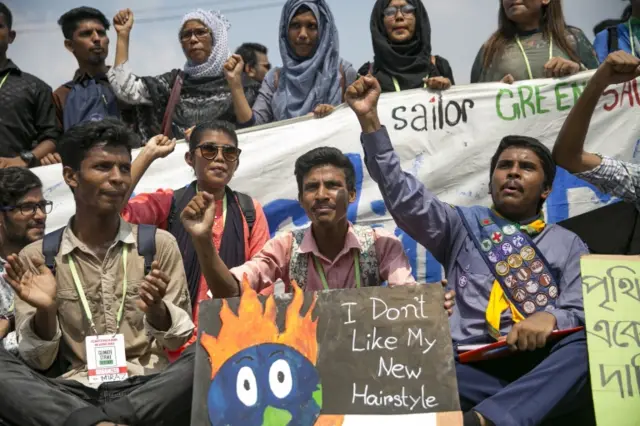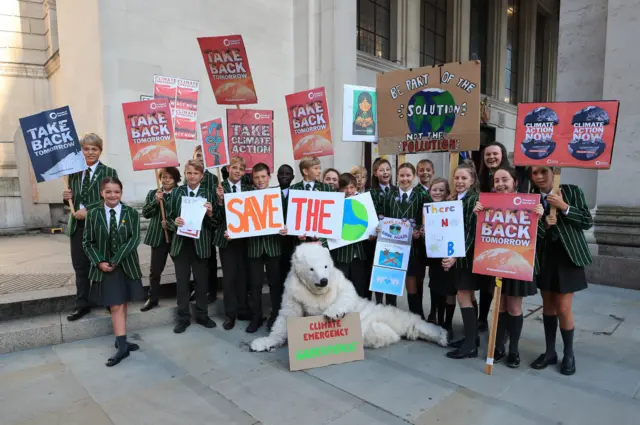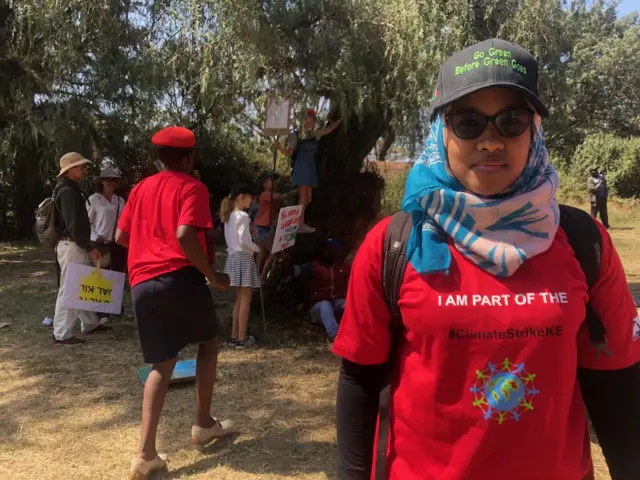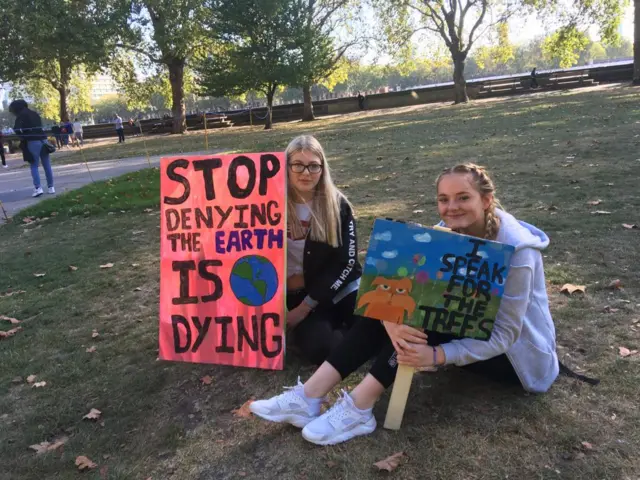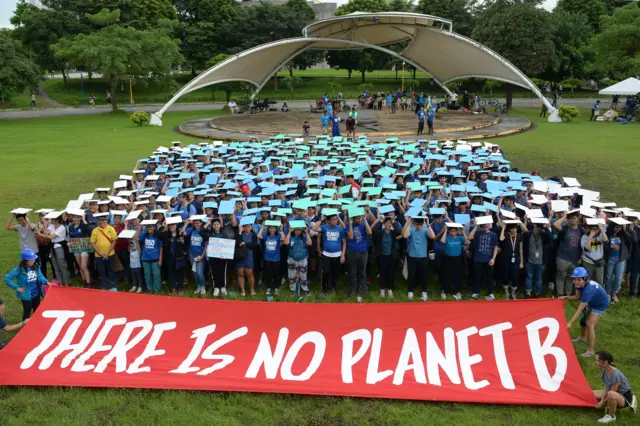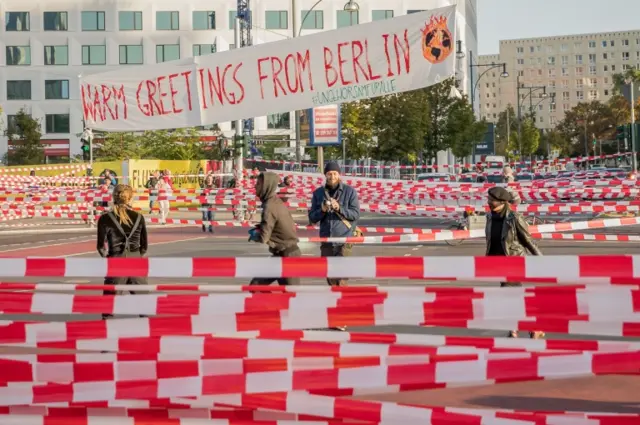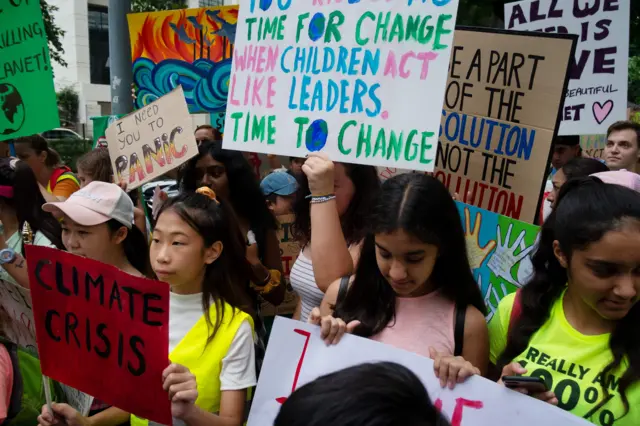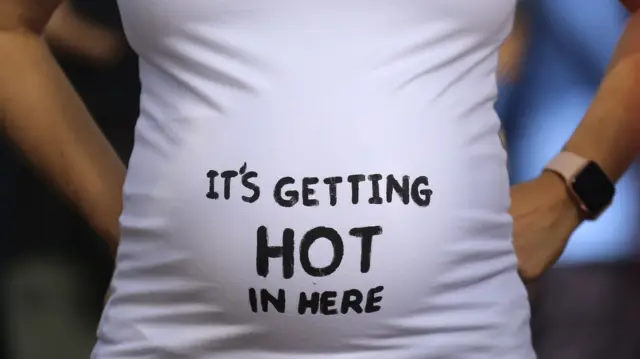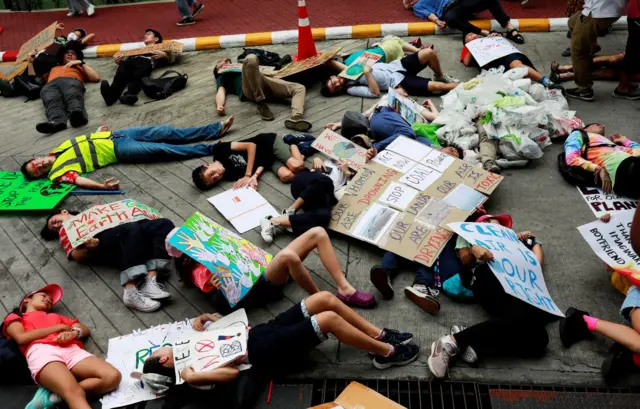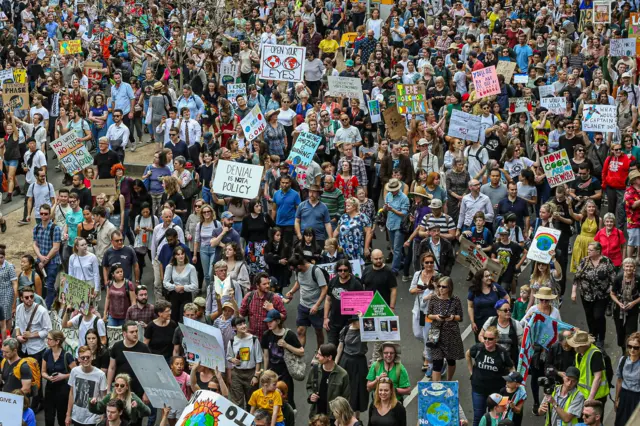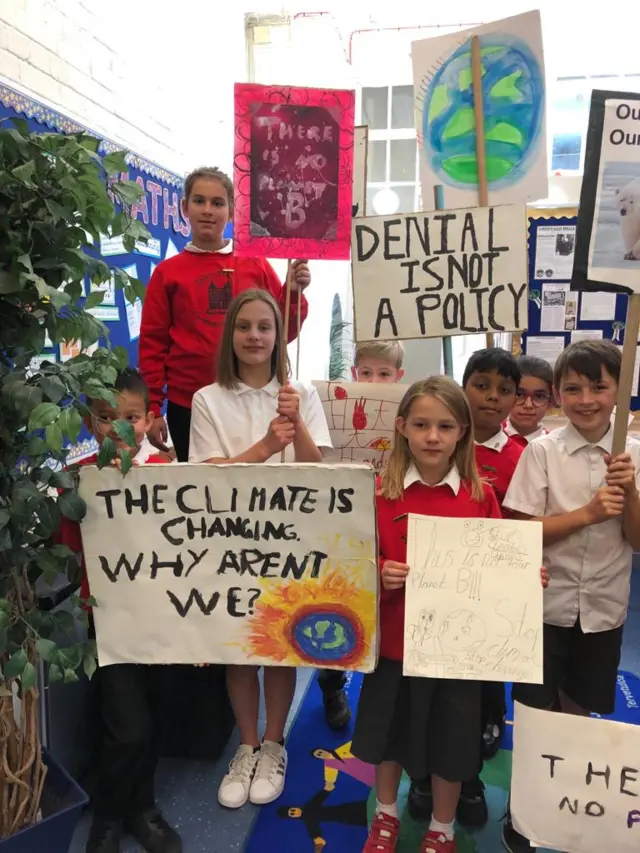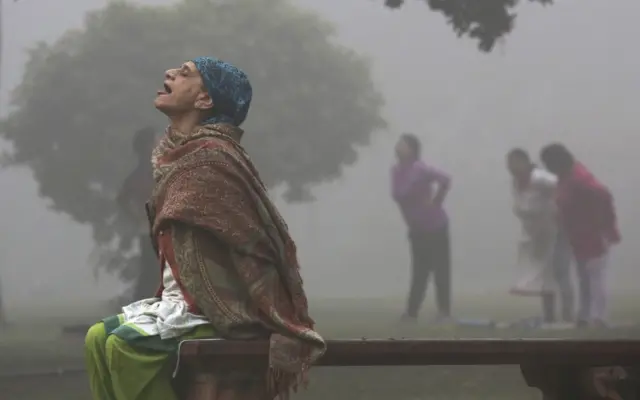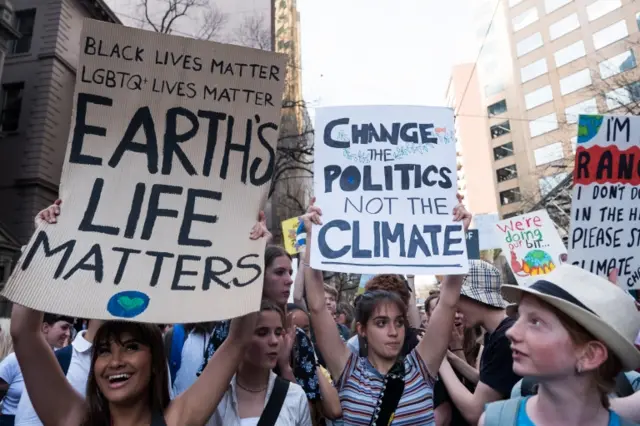Children 'fired up and angry'published at 11:22 BST 20 September 2019
Hannah Richardson
BBC News education and social affairs reporter
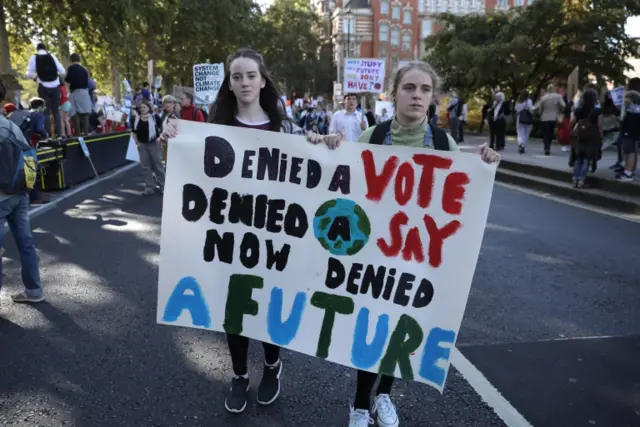 Image source, Getty Images
Image source, Getty ImagesI’m standing in shadow of the Houses of Parliament in London: group after group of school pupils are passing the end of the building, passing chants and energy to each other as they process towards the rally in Millbank.
It’s getting louder and louder, the cries of "climate justice" echoing out with an energy that only young children can muster.
These are 10-year-olds and eight-year-olds and they are fired up and angry - but terribly well behaved - just being allowed to use their voices for once.

